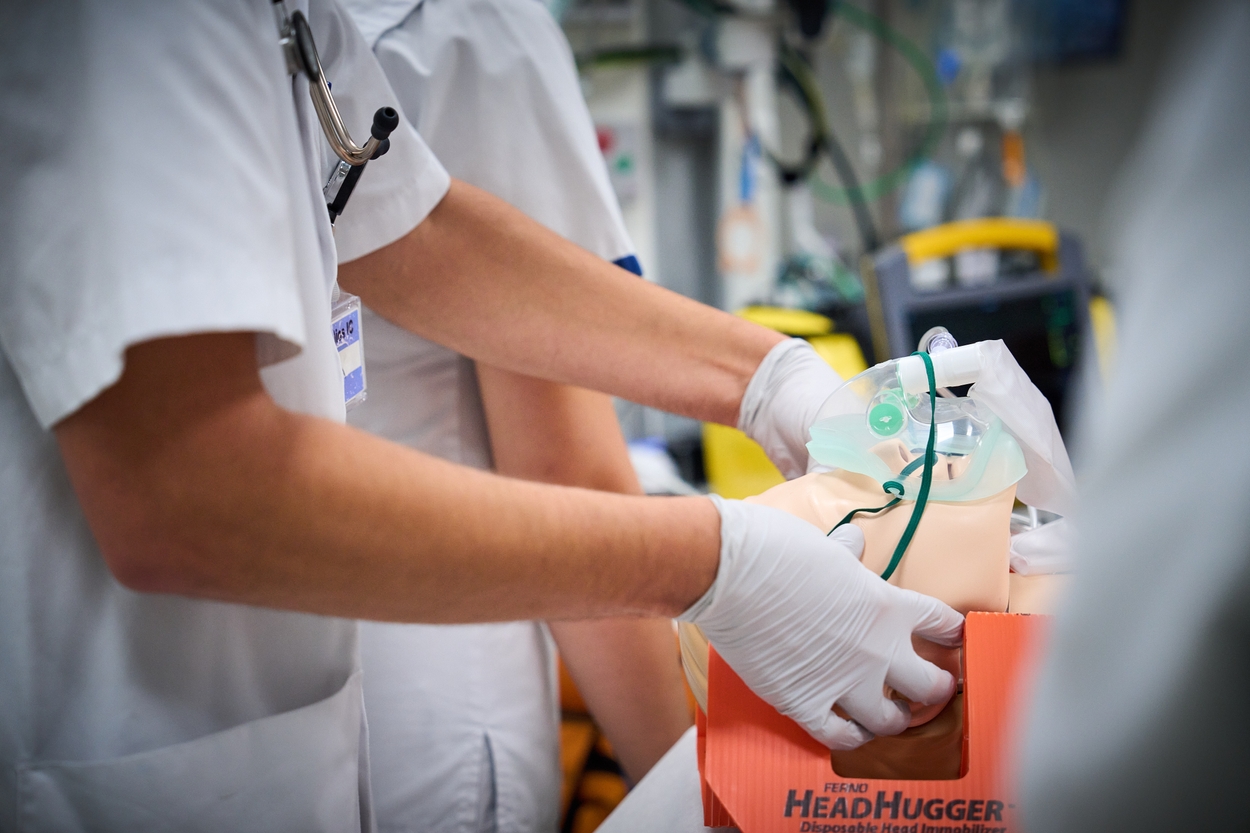•
Today
•
reading time 4 minutes
At its best, our healthcare is an expression of civilization and humanity. And we want to cherish that, right?
The film is now almost fifty years old and is known as a comedy. But in 2023 it has become a bitter reality: more and more doctors (and other healthcare professionals) are drowning in work. The fact that many doctors are at a loss manifests itself in various forms: burnouts, addictions, and misunderstood physical complaints are common health problems among people who want to help others recover from illness. The tap is leaking at the plumber’s house, the doctor himself is not in good health…
Absenteeism due to illness is higher in the healthcare sector than in other professional groups and you are increasingly hearing reports of people dropping out. Not because they no longer have a passion for care, on the contrary, but because the mandatory form in which care must be provided is becoming increasingly restrictive. The ever-increasing bureaucracy in healthcare is experienced by more and more people as a straitjacket that is too tight and from which they want to free themselves. The workload makes people decide to choose a completely different profession. And when people leave healthcare, a lot of knowledge and experience disappears. Which we can use so well at the moment.
Although the sounds that there is a serious crisis in our health care are becoming louder, politicians in The Hague do not seem to be very concerned about it. In any case, it is not a prominent theme in the programs for the coming elections. It could have to do with the difficulty of scoring politically in the complex world of healthcare. The fact that there are even plans to scale back investments in prevention is extremely worrying, because it is precisely through prevention that the pressure on healthcare could be reduced.
The trend that has been around for years will continue for some time: increasingly longer waiting lists and insufficient resources to eliminate them. For a long time this seemed to be a matter of money, but now the shortage of healthcare professionals threatens to become an even greater obstacle.
Doctors are dutiful people, often putting their work ahead of everything else in their lives. They care for their patients first and foremost, and only much later for themselves. If they ever get around to it. A burnout does not occur in a few weeks, it is the outcome of a long-term lack of balance between effort and relaxation, being on and off, caring for others and paying attention to yourself. There is a constant threat of a vicious circle: due to the increased workload, self-care continues to decline. Until something breaks…
During my time as a medical specialist, I also used work to numb myself. I was a workaholic who numbed his own pain by giving all my attention to my patients. And it was only when I was forced to stay at home for months that I gradually woke up.
People choose a career in healthcare from their heart. It is human work, in which connecting with a fellow human being provides the most important meaning. But how do you connect when your heart is locked, when you are lost in your head? When technology and impersonal guidelines and protocols dominate your working day?
At its best, our healthcare is an expression of civilization and humanity. And we want to cherish that, right?
Then let us invest in the well-being of all those healthcare workers. Because if things go well for them, they can mean the most to all those people who rely on their professional skills.
‘Improve the world and start with yourself’ is a slogan from the distant past, which we should perhaps give new impetus to. Instead of accredited further training courses that are only aimed at increasing knowledge, we should facilitate that all those (para)medics get to work on themselves. Examine their motives, and analyze the practical differences between their dreams and their actions. In recent years we organized a number of retreats for healthcare professionals, which always resulted in the same evaluation: because I have gotten to know myself better and I no longer shy away from my own old pain, I have also changed in my work. I can put my role into perspective better and dare to show myself more to the people I try to help. One surgeon added something important: ‘not only does it take less effort for me, the work, it also seems to go faster. Now that I dare to follow my intuition more, I get to the core of what contact with patients is all about.’ It is nothing more than an opinion yet, but perhaps we can dedicate some scientific research to this. A healthcare professional who dares to be himself is better at work.
ps more about this can be read in my recently published book ‘Sensitive souls’
2023-10-18 16:02:51
#doctor #drowning #Joop #BNNVARA

)
